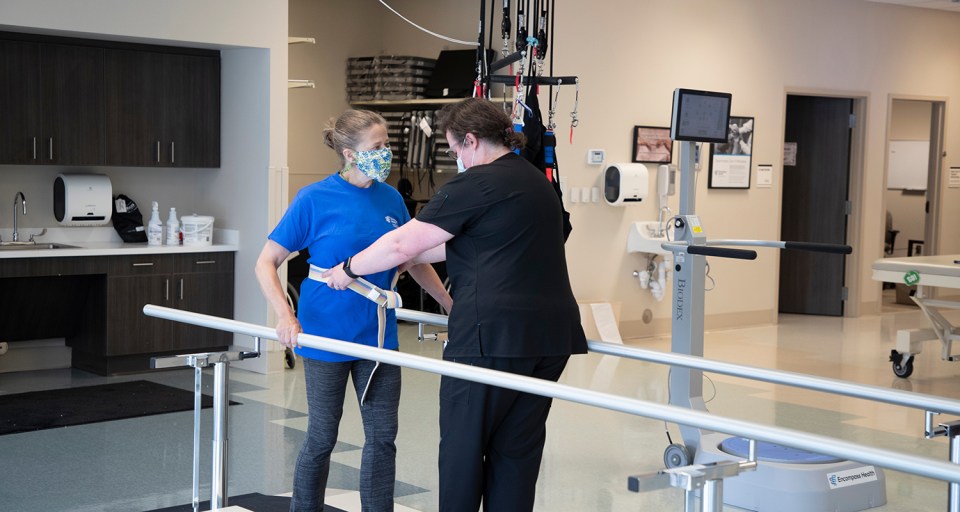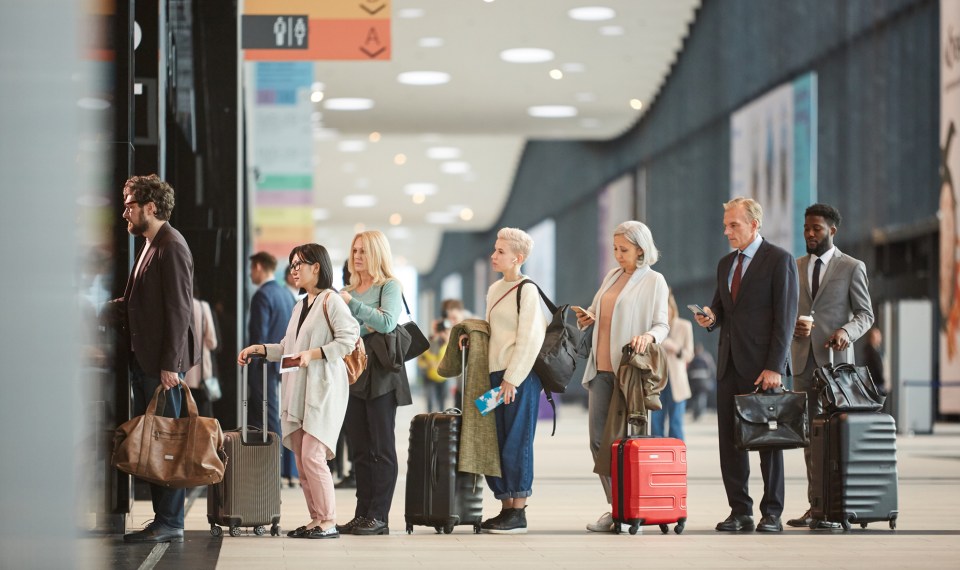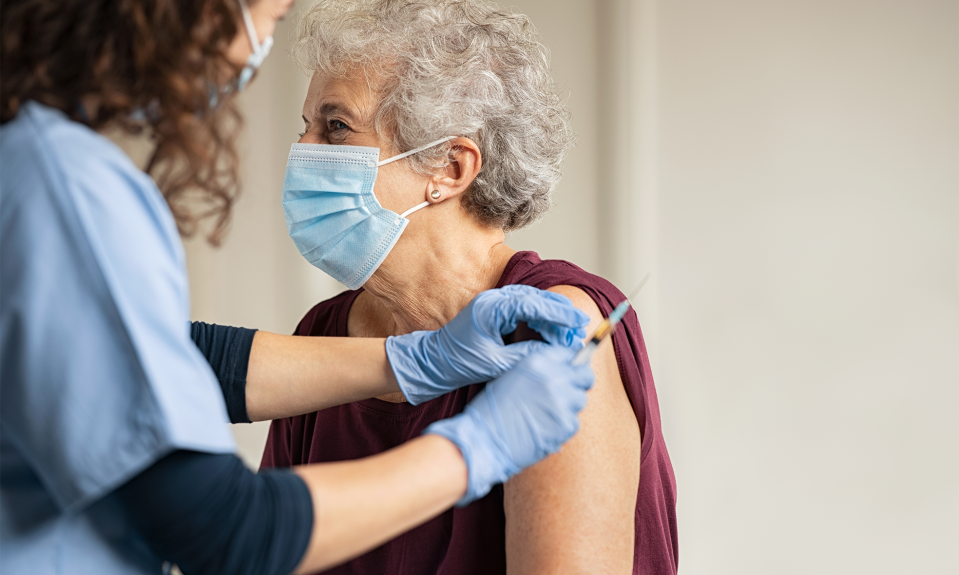When a patient recovering from severe to critical COVID-19 arrives at The Rehabilitation Institute of St. Louis (TRISL), Dr. Prateek Grover can expect certain things.
First, the patient has already had an extended stay in an acute care hospital and probably spent time in the ICU, possibly on a ventilator. They are also likely to be extremely weak and deconditioned, with limited mobility and cognitive fog after a long stay at the hospital separated from loved ones.
What Grover and others treating these patients are not sure of is the long-term effects of COVID-19.
“We’re finding that the manifestations of this disease extend much beyond the initially considered lung involvement only,” said Grover, who has been working with patients requiring rehabilitation for COVID-related impairments. “This is a novel virus, and there are so many unknowns. We’ll keep learning about the long-term effects in the months and years to come.”
Grover is the medical director at TRISL, where he treats patients recovering from life-changing illnesses and conditions, and now, COVID-19 survivors. He said the most severely affected COVID-19 patients need rehabilitation to build back their strength and cognitive abilities in order to return to their home and communities.
“We’re finding those who have had really severe cases are having a hard time tolerating even the most basic things,” Grover said. “Sitting up for a few minutes unsupported and transferring from bed to chair independently — even those things can be really challenging.”
A predisposition to clotting
One COVID-19-related condition that Grover said occurs early in the course of severe disease is a predisposition to clotting. Because of that, some patients could be more likely to have a stroke or amputation.
“If the blood supply to the brain is blocked, you can have a stroke,” he said. “If the blood supply to a limb gets blocked, it could cause you to lose that limb.”
Both conditions often require inpatient rehabilitation, where patients receive occupational, physical and speech therapy to help them regain their independence.
Lingering symptoms
COVID-19 survivors who come to TRISL from an acute care hospital typically stay at the rehabilitation hospital for about two to four weeks, and many need continued rehabilitation after discharge.
Grover said that most individuals are much better at discharge compared to when they were admitted to the rehabilitation hospital, but they still have long way to go to return to their pre-COVID-19 lives.
They are still weak and once simple tasks such as walking upstairs can leave them breathless and exhausted. How long will that fatigue and shortness of breath last? Grover said only time will tell. Many clinics are now beginning to offer management services for this “post-COVID-19 syndrome.”
The role of post-COVID clinics
When Grover considers what the future might hold for some of these patients who have had severe to critical viral disease, he talks about being very proactive and about the role of the post-COVID clinics.
“I think late manifestations will be important to watch for with this virus, but we won’t find out for months,” he said. “Potential relationships to autoimmune syndromes such as Guillain Barre syndrome and relapses of multiple sclerosis are being discussed, although evidence is very limited so far.”
If late manifestations do occur and are severe enough, Grover suspects some of these patients may need rehabilitation again to manage these conditions.
There is also growing concern regarding the possibility of mental health issues in individuals recovering from COVID-19 as well. “There is a lot of psychological angst,” Grover said. “It’s not just what they’ve been through, but this is a new disease. They don’t know the prognosis long term. There’s so much uncertainty. We’ve not seen anything like this in terms of overall impact in the recent past.”
Dr. Prateek Grover MD PhD MHA is a board-certified academic physiatrist at Washington University School of Medicine. He is currently the medical director of The Rehabilitation Institute of St Louis as well as medical director of the Amputation Rehabilitation program at the same institute. His education and training include clinical care, research and administration/ leadership.
Dr. Grover strongly believes that health system and stakeholder coordination are the key to improving care. Accordingly, his clinical, research and advocacy efforts are focused on prosthetic and rehabilitation care coordination and access for individuals with limb loss. He chairs the Limb Restoration Rehabilitation Networking Group, American Congress of Rehabilitative Medicine and serves on the Scientific and Medical Advisory Committee for the Amputee Coalition.
The content of this site is for informational purposes only and should not be taken as professional medical advice. Always seek the advice of your physician or other qualified healthcare provider with any questions you may have regarding any medical conditions or treatments.


